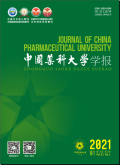中国药科大学学报2024,Vol.55Issue(1):53-62,10.DOI:10.11665/j.issn.1000-5048.2023112703
基因介导的精准免疫疗法在急性髓系白血病治疗中的进展
Progress of gene-mediated precision immunotherapy in the treatment of acute myeloid leukemia
摘要
Abstract
Acute myeloid leukemia(AML)is a disease caused by abnormal cloning of hematopoietic stem cells in the bone marrow,which leads to accumulation of a large number of abnormally differentiated myeloid cells.It is difficult to cure by traditional treatment.The successful application of chimeric antigen receptor T cell(CAR-T)immunotherapy indicates that the treatment of hematological tumors has entered a new stage of precision immunotherapy.However,CAR-T immunotherapy has been found to have many problems in clinical applications,including long treatment cycle,expensive prices,off-target effects,cytokine release syndrome,etc.Therefore,it is necessary to expand the application of CAR or adopt improved measures to enhance the therapeutic effect.This article reviews the new strategies for genetic engineering modification of CAR immune cells and the research progress and application of in situ programming to generate CAR-T,and besides,briefly introduces the new methods about the delivery of gene drugs in vivo,aiming to provide new ideas and theoretical basis for expanding and improving the application of precision immunotherapy in AML.关键词
急性髓系白血病/基因编辑/嵌合抗原受体/原位编辑/精准免疫疗法Key words
acute myeloid leukemia/gene editing/chimeric antigen receptor/in situ programming/precision immunotherapy分类
医药卫生引用本文复制引用
赵鹏博,朱滢,尹莉芳,辛晓斐..基因介导的精准免疫疗法在急性髓系白血病治疗中的进展[J].中国药科大学学报,2024,55(1):53-62,10.基金项目
国家自然科学基金项目(No.82304410) (No.82304410)
江苏省自然科学基金项目(No.BK20221045) (No.BK20221045)
国家生物药技术创新中心资助项目(No.NCTIB2022HS01015) (No.NCTIB2022HS01015)
中国药科大学"双一流"项目This study was supported by the National Natural Science Foundation of China(No.82304410) (No.82304410)
the Natural Science Foundation of Jiangsu Province(No.BK20221045) (No.BK20221045)
the National Center of Technology Innovation for Biopharmaceuticals(No.NCTIB2022HS01015) (No.NCTIB2022HS01015)
and"Double First-Class"Initiative Program in China Pharmaceutical University ()

